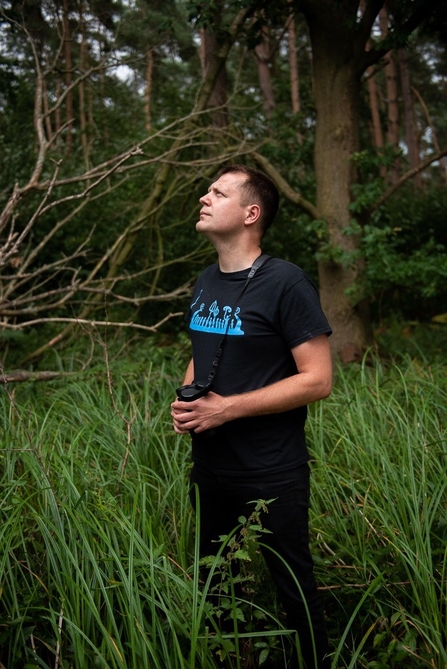I sometimes imagine my story as being similar to that of an emergent sapling. I started off at a much lower point, possibly a tad stunted by trampling footprints in my early days; and forever trying to bed roots in often impermeable ground. I was reaching for the light but always battling with the other saplings to try and be a part of the canopy. The light was hard to reach, though, and my ground-space always seemed to be darker. Too dark.
Nature has always been a part of my story. Before the years of addiction issues, mounting debt and subsequent explosive breakdown, I’d been much more connected to it. Grandad taught me a lot, mostly about birds – hovering kestrels and diving grebes – which he embedded in my psyche. School too, where we were lucky enough to have a headteacher who cared immeasurably for our native county, its rich heritage and bountiful biodiversity. It was part of my life, a life that trickled by in the gentle hum of the bees in the flower garden.
It went wrong in my teenage years. I put all my effort into becoming popular, over-exerting until it became part of who I was. It felt good to make people laugh – to be different – being what I thought was ‘cool’ and ‘me’. Except it was all a mask. I started burying the real me, and along with it the issues that the real me struggled with, replacing them with a caricature of what I thought people wanted me to be. Then the mask became a suit, a protective layer that shielded me from the truth. Drugs entered my pantomime before paving the way for the biggest villain to enter – alcohol.
He was in the starring role on the day that led to my implosion; a day that came only weeks after I had tried to take my own life, yet still managed to avoid intervention. Today, looking back, I’m thankful that I was caught and stopped; and that I’m able to write these words for you on a day when raising awareness and sharing stories is so important. The canopy may have closed in on me, but I was just able to untangle some of the ivy clinging to my branches to reveal the light.


